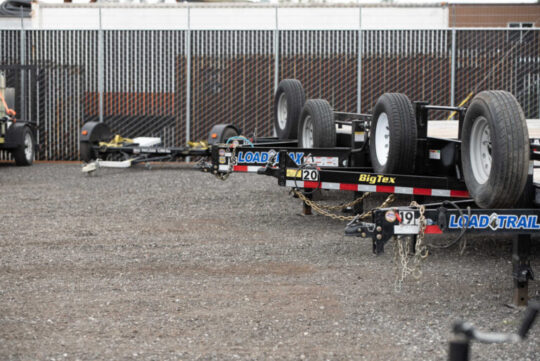In today’s world, trailers have become a commodity product that is a common sight on the highways and backroads of America. Trailers serve a variety of purposes, from transporting goods to serving as temporary homes for travelers. However, the trailer industry is extremely sensitive to interest rate hikes, and this can have a significant impact on the market.
Most trailer dealers buy their stock on credit, which means that they have to pay interest on their loans. When interest rates rise, servicing this debt becomes much more expensive. As a result, dealers have to increase their expenditures, and they need more sales to continue to increase dealership profitability. But, unfortunately, this is easier said than done because increased interest rates don’t appeal to most consumers.
One of the major challenges that the trailer industry challenges is that interest rate hikes affect the purchasing power of consumers. When interest rates increase, the cost of borrowing money increases as well. This makes it more expensive for consumers to finance their purchases, and many people may choose to postpone buying a trailer until interest rates come down. This, in turn, can create a slowdown in sales, which can be detrimental to dealers struggling to stay profitable.
Moreover, the trailer industry is not immune to the larger economic trends that affect the country as a whole. For example, when the economy is doing well, people are more likely to have disposable income to spend on luxury items such as trailers. Conversely, when the economy is struggling, people are more likely to cut back on non-essential purchases. In either case, the interest rate hikes can amplify the impact of these larger economic trends, making it difficult for trailer dealers to maintain steady sales.
Another challenge that the trailer industry faces is the rise of alternative forms of transportation and lodging. In recent years, there has been a growing trend towards smaller, more compact vehicles, such as SUVs and crossover vehicles. These vehicles are not always compatible with larger trailers, which can make it difficult for dealers to sell their products to a wider audience. Furthermore, the rise of Airbnb and other similar services has made it easier for travelers to find affordable lodging without having to invest in a trailer.
Despite these challenges, there are still opportunities for the trailer industry to thrive. For example, the rise of remote work has led to a growing trend towards “digital nomadism,” in which people travel and work from the road. For these individuals, a trailer can be an ideal solution, as it provides a mobile workspace and living space in one convenient package.
In conclusion, the trailer industry is an important part of the American economy, but it is also a sensitive one that is heavily influenced by interest rate hikes. When interest rates rise, dealers face increased costs and reduced sales, which can make it difficult to stay profitable. However, by adapting to changing consumer trends and finding new opportunities in emerging markets, the trailer industry can continue to thrive in the years to come.

